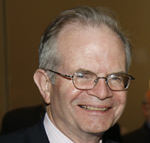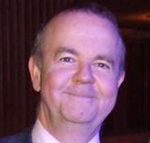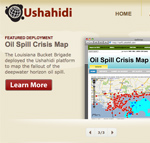Naturally this is an entirely subjective list, but I’ve tried to inject some logic into it.
So it only includes individual, not group, feeds. I’ve also gone for social Twitterers rather than the Twitter-as-RSS brigade (you know who you are).
And, by and large, I’ve stuck to ‘mainstream’ news people rather than some niche news people, which obviously means excluding some great twitterers especially in the media and tech space. Oh, and it’s UK-only.
Finally, I went crowdsourcing among a portion of the Twitterverse before I compiled this list, so some of the entries are the very excellent suggestions of others.
So in alphabetical order:
1. Benedict Brogan
aka: @benedictbrogan
who: chief political commentator, Daily Telegraph.
why: One of the best journo bloggers around comes to Twitter. News, gossip, analysis.
typical tweet: Consternation inside the BBC at decision to interview Martin McGuinness outside the Grand, I’m told.#lab09
2. Nicky Campbell
aka: @nickyaacampbell
who: presenter, BBC radio and TV.
why: Mix of news, radio behind-the-scenes and real life.
typical tweet: Shelagh says “I developed my lip gloss habit because of Penelope Pitstop”
3. Ruth Gledhill
aka: @ruthiegledhill
who: religion correspondent, The Times.
why: A glimpse into the world of a national newspaper correspondent.
typical tweet: About to welcome Bishop of London Richard Chartres to News International to talk on Hair Shirts and the Apocalypse.
4. Bryony Gordon
aka: @bryony-gordon
who: features writer, Daily Telegraph.
why: Not strictly news, but gets in by virtue of being very, very funny.
typical tweet: If i was a journalist on newsnight now, i’d take paxo up on his red socks. but that’s why i’m not on newsnight. or even a proper journalist.
5. Alison Gow
aka: @alisongow
who: executive editor, Liverpool Echo.
why: Life and times of a big regional paper.
typical tweet: Aaaw – baby’s first legal action! Letter received from the Rooney lawyers warning of court action if papers take pix of their new baby.
6. Krishnan Guru-Murthy
aka: @krishgm
who: presenter, Channel 4 News.
why: Good mix of news, conversation and newsroom gossip – even known to tweet from the studio.
typical tweet: Think we might lead on Obama getting the Nobel Peace Prize…..or rather ‘why did Obama get the Nobel Peace Prize?’
7. Kevin Maguire
aka: @kevin_maguire
who: associate editor (politics), Daily Mirror.
why: Well-connected political journalist of the left, a rarity on Twitter. Fighting the good fight.
typical tweet: Ken Clarke’s huge breakfast bowl of prunes may do to him what Con policies would do to Britain.
8. Tim Marshall
aka: @ITwitius
who: foreign affairs editor, Sky News.
why: In his own words, “Insufferable know it all, or, informed commentator – you choose.”
typical tweet: Nobel Prize for best reaction to the Nobel Prize? The Taliban. AFP wire – Taliban condemns decision to award Nobel Peace Prize to Obama.
9. Cathy Newman
aka: @cathynewman
who: political correspondent, Channel 4 News.
why: Funny, gossipy tweets.
typical tweet: Blimey mandy was not happy about me asking why he called the sun a bunch of c****.
10. Victoria Raimes
aka: @victoriaraimes
who: news reporter, Edinburgh Evening News.
why: More life and times on a regional. Takes you right inside the newsroom.
typical tweet: Late shift. Not fair. All good stories gone. Unless any of you good people want to go and create one?
11. Marc Reeves
aka: @marcreeves
who: editor, The Birmingham Post.
why: Twitter-veteran, knows how it works.
typical tweet: Ok. If (and I mean IF) there was a Birmingham Post iPhone app, what would you want it to do?
12. Alan Rusbridger
aka: @arusbridger
who: editor, The Guardian.
why: Occasional, but insightful tweets.
typical tweet: Breaking news. Guardian gagged by a company in the High Court. We can’t tell you which company, or why. Er, that’s it.
13. Alex Thomson
aka: @alextomo
who: chief correspondent, Channel 4 News.
why: Tweets from Kabul to the More4 News studio and all points in between. Good mix of news and nonsense.
typical tweet: Cherry tomatoes on my desk now – still 73 left to eat.
14. Jo Wadsworth
aka: @jowadsworth
who: reporter, Brighton Argus.
why: Life as a local paper hack, warts and all.
typical tweet: Think I’ve managed to diffuse newsdesk/sub spat by singing “I’d like to teach the world to sing in perfect harmony”. Now they just hate me.
15. Paul Waugh
aka: @paulwaugh
who: deputy political editor, London Evening Standard
why: Gossipy and insightful in equal measure.
typical tweet: Given ‘Evening Standard’ is now a trending topic, can I say that I’ve never before had so much interest in my organ.
So that’s my list. A little politics-heavy, but there are not too many home affairs and foreign correspondents out there in the Twittersphere, which is a shame.
I initially intended to feature 25 Twitterers from media land, but was rather underwhelmed by what I found. Many seemed to miss the opportunities on offer.
Anyway, who have I overlooked and who’s on the list that shouldn’t be? Leave a comment below or via @jon_bernstein.
Jon Bernstein is former multimedia editor of Channel 4 News. This is part of a series of regular columns for Journalism.co.uk. You can read his personal blog at this link.
 Tomáš Bella
Tomáš Bella Paul Steiger
Paul Steiger Chris Taggart
Chris Taggart Ian Hislop/Private Eye
Ian Hislop/Private Eye Brian Boyer
Brian Boyer Ushahidi
Ushahidi









